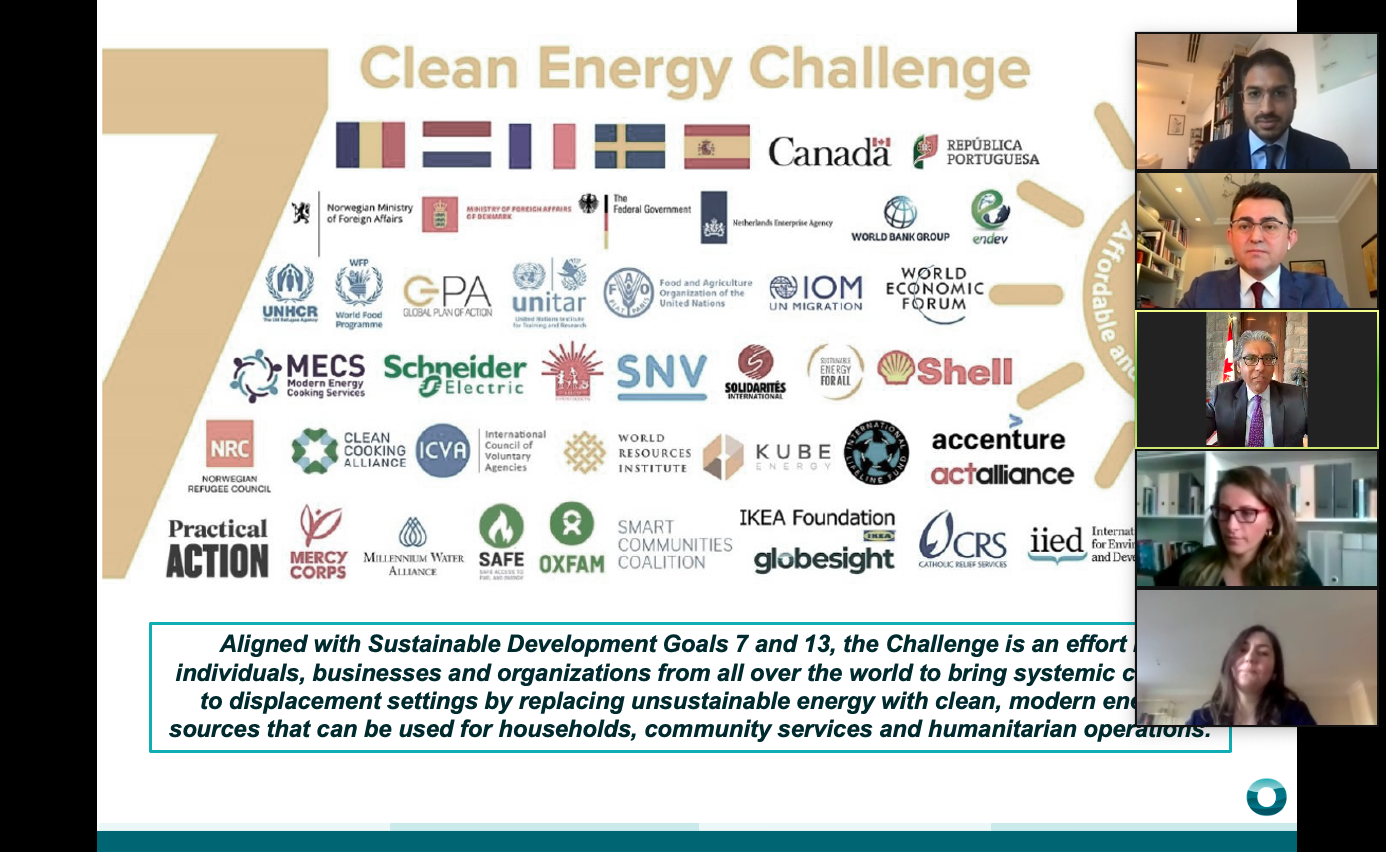During the Global Refugee Forum, the United Nations High Commissioner for Refugees (UNHCR) announced the Clean Energy Challenge, a multi-stakeholder platform of more than 200 partners. As a core founding member of the Challenge, Globesight committed to mobilizing the private sector around the Challenge in a number of countries with significant refugee populations through high-level convenings. Turkey—home to the world’s largest refugee population—is the first country in which this process was initiated, leading to a roundtable convening in partnership with TÜRKONFED (Turkish Enterprise and Business Confederation), and with the support of the Canada Fund for Local Initiatives (CFLI).
This high-level, solutions-driven roundtable served as an opportunity for convening key players in the Turkish energy sector and beyond to discuss solutions and opportunities to elevate the Turkish private sector’s skills to work towards the development of clean energy within refugee settlements and host communities. The roundtable further explored the context of access to clean energy for displaced people in Turkey, discussed challenges and conditions to create a conducive environment, contemplated opportunities for collaboration, and reflected on solutions to advance and strengthen the role of the private sector in achieving the goals set out by the Clean Energy Challenge. The event provided a platform to amplify diverse voices across sectors in Turkey in order to inspire action and activate capacities and innovation to catalyze progress towards clean energy access in refugee settlements. Broadly the discussion also covered the current state of clean energy, refugees, and gender equality in Turkey, alongside the identification of challenges. The participants also explored the role of the private sector in helping to spur innovation and scale to ensure clean energy access, especially in displaced settings, and the role of collaboration and partnerships in amplifying projects.
The discussion also touched on the renewable energy sector where it is estimated that jobs will increase from over 10.3 million today to 29 million by 2050 worldwide. The share of renewables in the total installed energy capacity exceeds 51%, and with regards to total energy production, has increased from around 14% in 2002 to 36% today. Turkey has a strong renewable energy sector with prominent producers, investors, equipment manufacturers, a facilitative regulatory environment, and financing mechanisms. In the past, large power plants were owned by the state; that has gradually changed over time alongside privatization. Hence, private sector investments supported by strong incentives have had a key role to play in this trend, accounting for around 21% of the production increase.
Any initiative at the nexus of displacement, clean energy, and gender equality in Turkey will need to plan its partnerships, approach, and investments in a manner that accounts for not only the current needs of local communities, but also the future needs that may arise due to wider concerns such as population growth, conflicts, health crises, and socio-economic suffering. Clean energy is a crucial pillar in this respect and understanding where displacement flows will be concentrated in the near and long-term will be key to planning for the right investments and partnerships.
You can find the highlights and key findings from the roundtable in our Outcomes Report.

